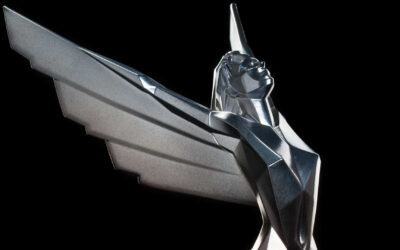BRIDGING WORLDS: HOW VIDEO GAME ADAPTATIONS CONNECT GAMERS AND NEW AUDIENCES
The world of entertainment is increasingly interconnected, and one of the most prominent trends in recent years has been the adaptation of video games into films, TV shows, and even animated series. While these projects often generate significant buzz, and introduce beloved game worlds to a wider audience, the reception isn’t always universally positive, particularly among the very people who made the games popular in the first place: the gamers themselves. Interestingly, however, these adaptations often find a receptive and enthusiastic audience in those who have never picked up a controller.
For dedicated gamers, video games are more than just a pastime; they are immersive experiences, often involving hundreds of hours spent mastering intricate mechanics, exploring vast worlds, and becoming deeply invested in the characters and lore. When these meticulously crafted universes are translated to the screen, gamers often come with a set of high expectations. They scrutinize every detail: “Is the tone right?”, “Are the characters accurately portrayed?”, “Does the adaptation capture the essence of what made the game so special?”
Inevitably, compromises are made during the adaptation process. What works in an interactive medium doesn’t always translate seamlessly to a passive one. Gameplay mechanics, a core element of the video game experience, are often entirely absent. Storylines might be condensed or altered to fit the constraints of a film or television season. Characters might undergo subtle or even significant changes in personality or appearance. These deviations, however necessary they may be for the adaptation to succeed in its new format, can often lead to disappointment and even outrage among the core fanbases. For them, it feels like a beloved story is being misinterpreted or diluted.
On the other hand, for individuals who have never played the source material, these adaptations offer a fresh entry point into a potentially rich and engaging world. They come to the experience without pre-conceived notions or deeply ingrained expectations. They can appreciate the narrative, the visual design, and the characters on their own merits, often finding themselves drawn into the lore and becoming fans of the universe without ever needing to navigate complex game controls or strategies. For them, the adaptation is simply a new and exciting piece of entertainment.
This dichotomy highlights a crucial aspect of adaptation: it’s often a balancing act between catering to the existing fanbase and appealing to a broader audience. Sometimes, this balance is struck masterfully, leading to widespread acclaim. Other times, it can feel like the adaptation prioritizes accessibility over fidelity, leaving dedicated fans feeling alienated.
However, the impact of successful adaptations can be undeniable, even on the original video games themselves. Consider the phenomenal success of Netflix’s The Witcher. While the games, particularly, The Witcher 3: Wild Hunt, were already critically acclaimed and commercially successful, the popularity of the Netflix series, starring Henry Cavill, propelled the games to new heights of mainstream recognition. Suddenly, people who had never considered playing a fantasy RPG were intrigued by the world of Geralt of Rivia. This led to a significant surge in sales for The Witcher 3, years after its initial release, demonstrating the powerful cross-promotional potential of a well-received adaptation.
Similarly, the animated series Cyberpunk: Edgerunners, based on CD Projekt Red’s Cyberpunk 2077, had a profound effect on the game’s reception. While Cyberpunk 2077 had a rocky launch, Edgerunners captured the gritty atmosphere and compelling characters of Night City in a way that resonated deeply with audiences, both gamers and non-gamers alike. The show’s critical acclaim and popularity led to a significant resurgence in interest in the game, with player counts soaring and the game finally receiving the widespread praise many felt it deserved. This example showcases how a strong adaptation can even help rehabilitate the reputation of a game that initially stumbled.
This ongoing trend of video game adaptations has continued to shape perceptions of interactive media in mainstream entertainment. HBO’s The Last of Us became a cultural phenomenon, praised by both gamers and non-gamers alike for its faithful yet accessible storytelling. Amazon’s Fallout series was met with widespread acclaim, successfully capturing the franchise’s satirical yet grim tone in a way that resonated with both longtime fans and those entirely new to the wasteland. What makes Fallout particularly interesting is that instead of retelling an existing game’s storyline, the show introduces a completely new story that fits directly into the franchise’s established timeline. Set in 2296, Fallout takes place after all the mainline games, occurring nine years after Fallout 4 and fifteen years after Fallout: New Vegas (IGN, 2024). This approach allowed it to remain fresh while still respecting the lore, making it enjoyable for both veteran fans and newcomers alike. Likewise, Uncharted, despite its blockbuster appeal, struggled to win over some gaming purists but found a solid audience among those unfamiliar with Nathan Drake’s adventures. Netflix’s Arcane, based on League of Legends, serves as a rare example of an adaptation that managed to bridge both audiences successfully, offering rich storytelling that resonated with fans and first-timers alike.
In conclusion, the adaptation of video games is a complex and often debated topic. While dedicated gamers may approach these projects with a critical eye, focusing on faithfulness to the source material, adaptations offer a valuable opportunity to introduce captivating game worlds and characters to a wider audience who can appreciate them without the baggage of gaming expectations. Furthermore, the success of shows like Cyberpunk: Edgerunners, and Netflix’s The Witcher has demonstrated the powerful impact these adaptations can have on the original games, breathing new life into them and attracting a wave of new players eager to experience the interactive worlds they’ve glimpsed on screen. Ultimately, while the relationship between video games and their adaptations can be fraught with the expectations of hardcore fans, the potential for mutual benefit and the introduction of exciting narratives to new audiences make this trend a significant and evolving part of the entertainment landscape.
Read More Of Our Stuff
2025, The Year The Average Gamer Upgrades
With Nvidia entering their 4th generation of ray tracing cards, and gamedev companies shoving excessively demanding requirements down our throats, is it time to finally get with the program and conform?
Ten Years of The Video Game Awards
The medium of film or motion pictures has existed for just over 100 years now. 50 years in, they had already established a canon, and a set of values or expectations that creators and the audience had become accustomed to. A substantial contributing factor to the established canon of film was the implementation of the Academy of Motion Picture Arts and Sciences Awards, also known as the Oscars.
Best Media of 2024: Nerd|Otaku Writers’ Choice
From Arcane to Fallout, Black Myth Wukong to Marvel Rivals, The Substance to Anora; 2024, no doubt, has been a big year for film, TV, novels, video games, and music. We, the writers of Nerd|Otaku, had a long discussion on what our favorite media from this year was.









